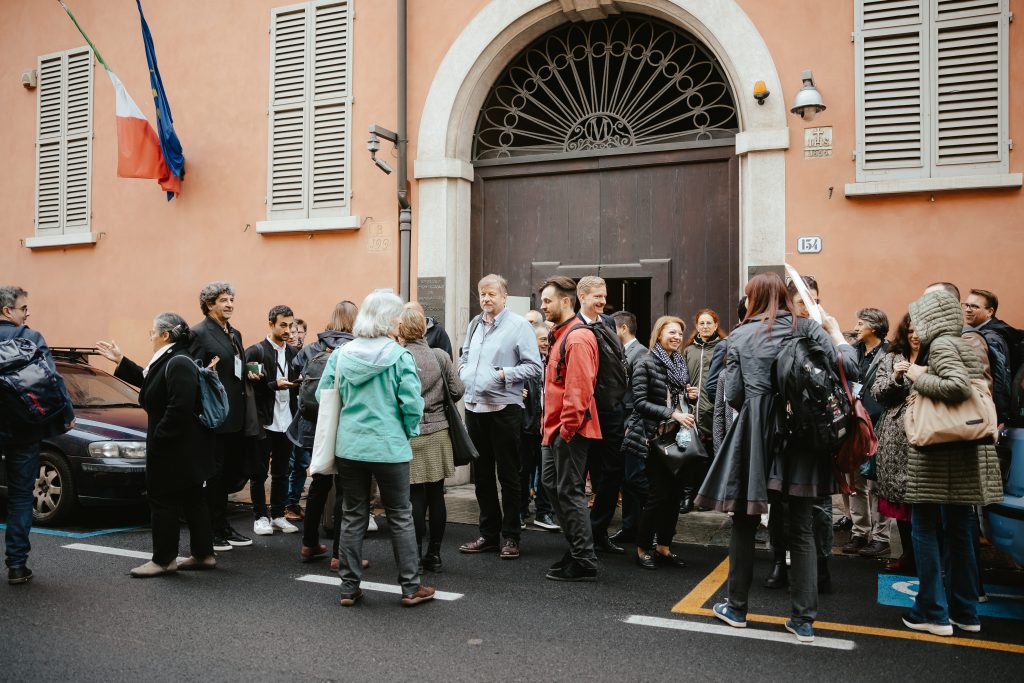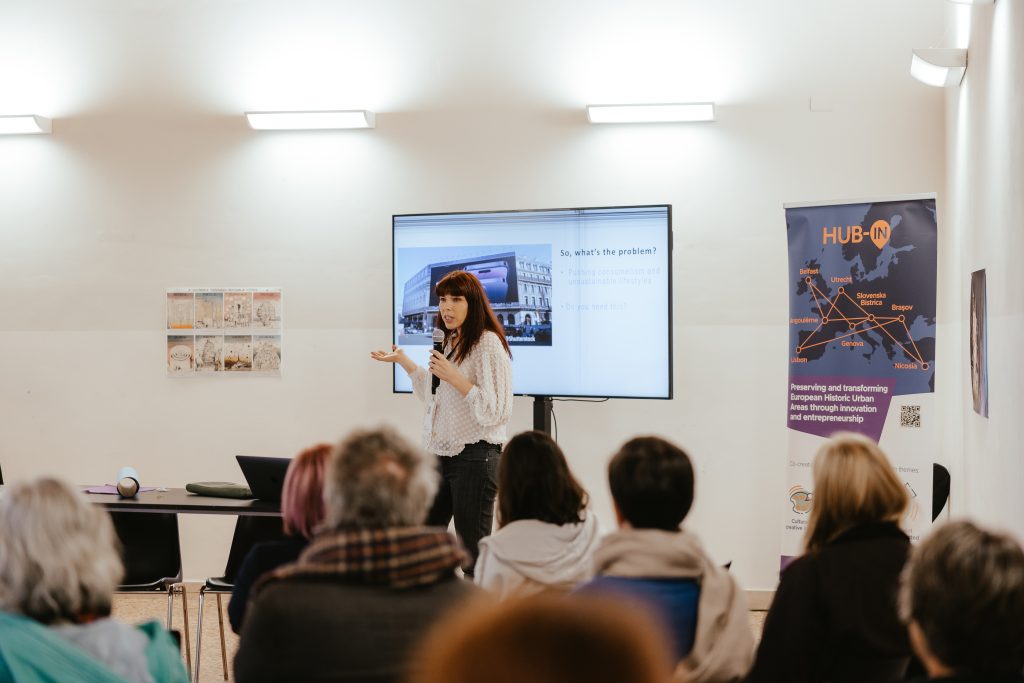ENC’s Olinda, the city that continuously reinvents itself
During the Energy Cities Forum in Modena, we embarked on a journey through urban regeneration for more sustainable cities
Calvino’s invisible city of Olinda grows in concentric circles. You need a magnifying glass to appreciate all the features of this always-renewing city. The old walls expand bearing the old quarters with them. Newer quarters grow up on the margins and become thinner to make room for still more recent ones pressing from inside (Invisible Cities, Italo Calvino).
Like Olinda, our cities need to keep regenerating themselves to be future-proof. This is why Energy Cities’ HUB Fair Economies works to rethink the potential of cities by creating a more people-centred and resource-wise local economy.
On the 18th of October, during the Inspirational Day at the Annual Forum in Modena, we took our partners and members on a journey through urban regeneration to understand how to give public space back to citizens. Let’s have a closer look!

Urban Regeneration And Vacant Spaces: A Walking Tour Through Modena’s Transformation
How to bring abandoned spaces back to life?
Our tour through the Italian city of Modena proved that art can reinvent old hospitals and factories. The walk started in the heart of the historic center at Polo Sant’Agostino. What back in the day was a hospital, will soon become one of the biggest Italian cultural centers including an exhibition space and the city’s main cultural institutions.
The second stop of this inspirational walking tour was Modena’s Creativity Park, which is comprising the urban regeneration of four major buildings into:
- The Laboratorio Aperto, the former headquarters of the Municipal Electric Companies (AEM transformed into a smart creative hub where startups and artists can thrive.
- The new Teatro delle Passioni with a space for outdoor performances.
- The new gymnasium, designed for use by the center’s schools and sports training and competitions. It is a nearly zero energy building with very low consumption and running costs due also to a rooftop 32KWp photovoltaic system.
- A space of 900 m2 that will host a neighbourhood supermarket, offices and spaces for events and catering.
The refurbishments have sparked broader urban regeneration, introducing features like a pedestrian plaza, bicycle facilities, and access routes. Modena’s transformation continues with plans to repurpose an abandoned industrial plant into a sustainable mobility innovation district, supported by the National Recovery and Resilience Plan, offering opportunities for start-ups and further exploration.
We need to be back to check it out!

Can Cities Kick Ads Out? How We Can Give Back Public Spaces To The People
An ethical city should care about its citizens. Currently, ads are everywhere and have a huge impact on everybody. This overexposure encourages overconsumption by creating new needs as well as promoting products or services in contradiction with the climate urgency and planetary boundaries.
To engage with our speakers and the public, we set up a Future Generation Court, a “trial” to discuss if and how cities can reclaim public space.
Charlotte Braat, campaigner at Advertising Fossil Free, testified that 25 cities around the world have already banned fossil advertising. Her Dutch organization is advocating for a national or international law prohibiting all forms of fossil advertising (fossil products and services, aviation sector, etc.), inspired by the tobacco advertising bans established by the World Health Organization (Framework Convention on Tobacco Control).
Then, Ziggy Klazes from the city of Haarlem, Flavia Boghiu from Brasov and Benjamin Badouard from Lyon Metropolis shared their experiences around the restriction of outdoor advertising in their cities. In Haarlem, a local motion will prohibit ads for holiday flights, non-electric cars and fossil fuels from 2024. Brasov – the most popular Romanian destination – strives to become a green city. In the context of the HUB-IN project, it is developing a sustainable and respectful public space by revaluing its traditions, restricting ads on facades, giving more space to pedestrians, and rethinking urban furniture. Lyon Metropolis recently voted for its new local outdoor regulation that – among other things – will ban 60 to 80% of private billboards, as well as illuminated signs at the top of buildings. Moreover, the size of panels will be reduced to a maximum of 4 m2.
The examples set by Modena and other cities, along with the push to remove advertising from our public spaces, remind us that the path to more ethical, sustainable cities begins with local action. There’s a huge potential for cities to reinvent themselves in new Olindas.
Energy Cities is here to help them to unlock their potential for everybody’s well-being.

